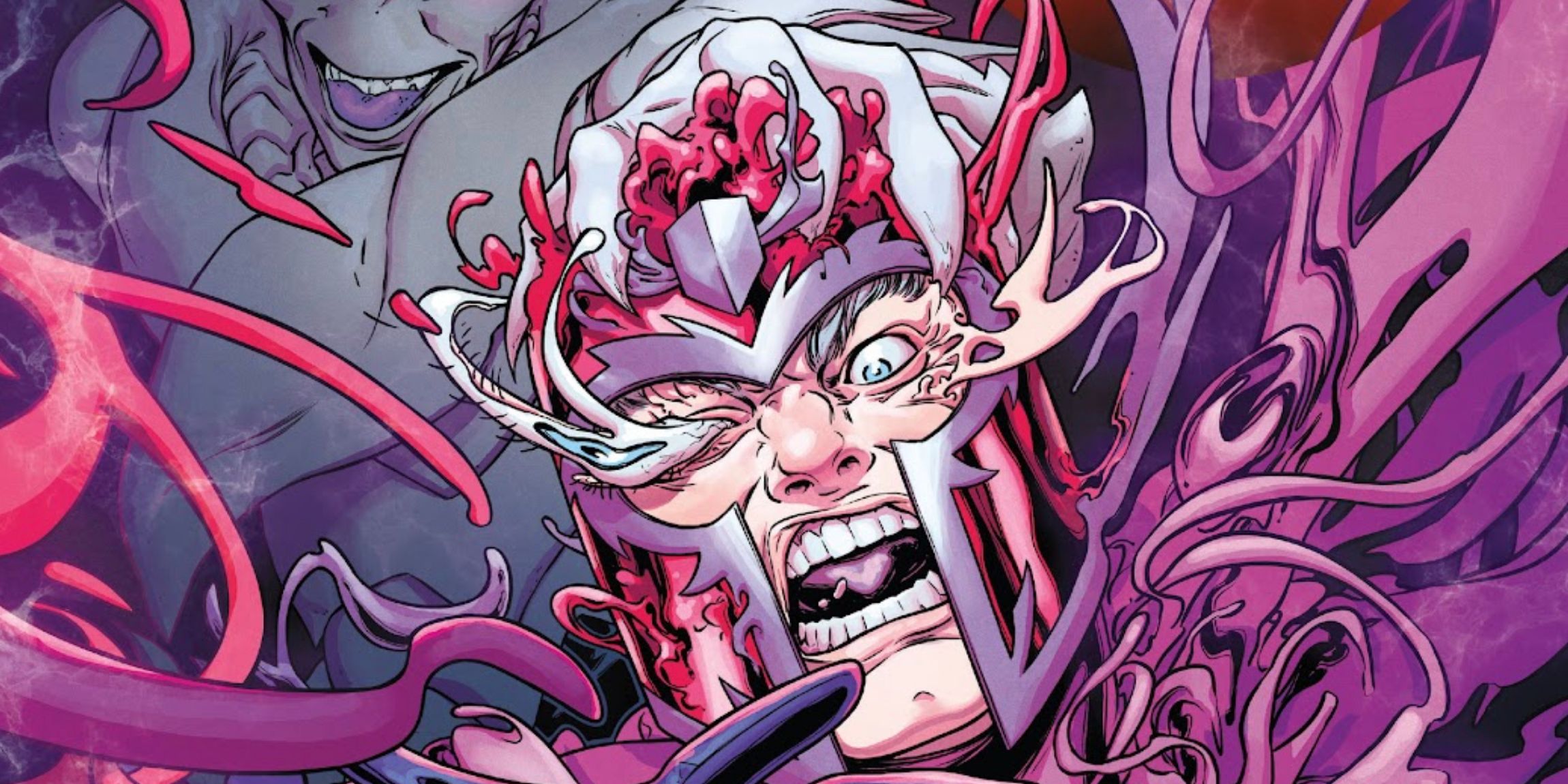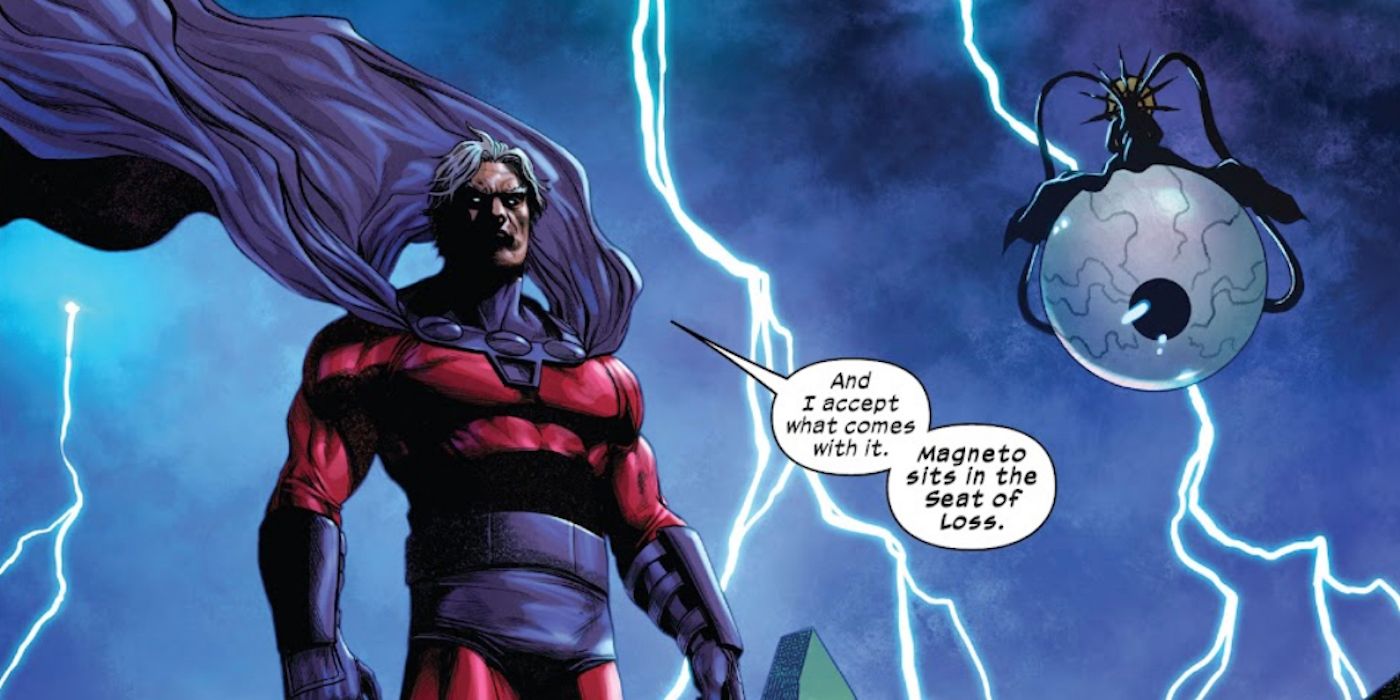The following contains spoilers for X-Men Red #3, now on sale from Marvel Comics
X-Men Red is a political faceoff between two factions over the fate of Arakko, a society of mutants previously stranded in the dimension of Amenth, but now settled on a terraformed Mars. On one side is Abigail Brand and her X-Men Red, a team composed of Cable, Vulcan, Mentallo, Random, and Frenzy. On the other side is the Brotherhood, an unlikely alliance of Storm, Magneto, Sunspot, and the Arakkan known as the Fisher King. While there’s been scant direct conflict between the two groups, X-Men Red #3 (by Al Ewing, Stefano Caselli, Federico Blee, Tom Muller, and VC’s Ariana Maher) of the series saw each challenge for one of Arakko’s nine seats, the Seat of Loss.
Arakko is ruled by the mutants who occupy the nine seats of the Great Ring, and while most exist in disparate forms of amity, Tarn the Uncaring is despised by most of the mutants on the planet. He was the one who tortured the mutants of Arakko when they were ruled by the demons of Amenth. The fact that he’s allowed to keep his seat is a point of almost-nationalistic hatred to the Arakkan. By sending Vulcan to challenge for Tarn’s seat, Brand hoped to gain an inroad to Arakkan society and a seat on its Great Ring to counteract Storm’s own.
But Vulcan lost in a brutal fashion, as even with his and Tarn’s mutant powers canceling each other out Tarn remains a fierce physical combatant. Tarn’s power is to steal the mutant powers of others through “genomic manipulation.” It’s the sort of power that one would expect to serve him well against his next challenger, Magneto. Magneto challenged Tarn after being urged to do so by Sunspot, who goes by his birth name of Roberto da Costa throughout his time on Arakko.
Sunspot watched the match with no small amount of relish, choosing to sit next to and chat up Isca the Unbeaten, another member of the Great Ring. Isca’s singular mutant power is unusual — she can’t lose. It’s a singular, almost curse-like ability, more reminiscent of a Greek hero of tragedy than a modern-day superhuman. It expresses itself in a myriad of ways; in an individual contest, she does exactly what she needs to do to win, while she’s forced by her power to defect to the winning side in larger contests like wars where her individual prowess is unable to turn the tide. Roberto points out to Isca that he can “lose without losing,” something the undefeated Arakkan scoffs at.
After Vulcan’s defeat, Magneto takes his place across from Tarn to issue his challenge, which Isca chastises. While Tarn and Vulcan’s unique power interaction resulted in a fight without mutations, Tarn’s psychic DNA manipulation would likely work without a hitch on Magneto. But just as the contest is about to begin, Sunspot bets Isca that Tarn will win. It’s a single, unsolicited statement, but it immediately places Isca and Roberto into a small contest of their own, where Isca will “lose” if Tarn wins his fight against Magneto. That means in order for Isca to “win,” Magneto would have to defeat Tarn.
What happens next makes sense according to its own internal logic, as Magneto uses his infamous psionically blocked helmet to cut off Tarn’s powers before using it as a steel vise to pulp his skull. But Isca seems to believe it happened because of her power, enraged enough to attack Sunspot. It’s obvious that Roberto believes it too, or he wouldn’t have risked provoking her. The actual specific mechanism by which her power interfered — whether it be giving Magneto the idea or twisting the strands of fate itself — is immaterial. Sunspot manged to change destiny and give the Brotherhood one up on X-Men Red, all without lifting a finger.


